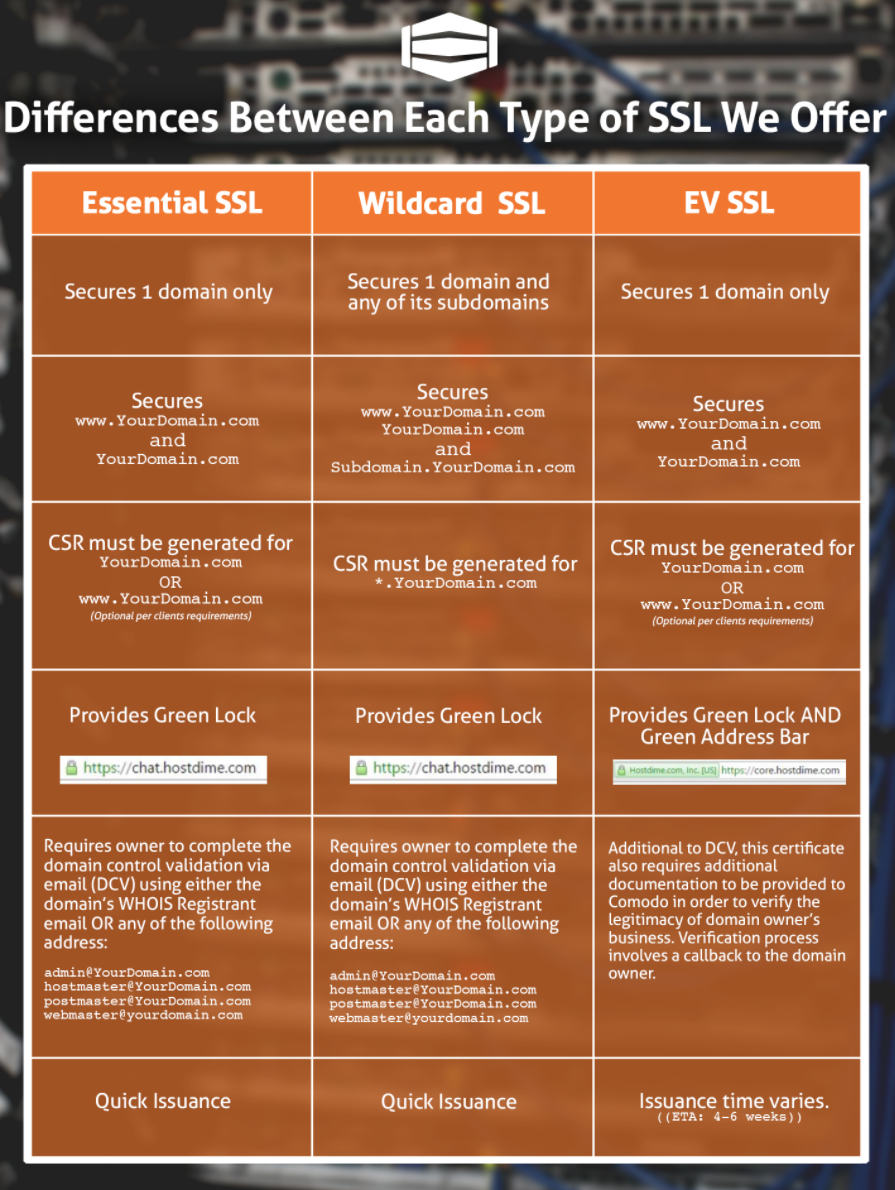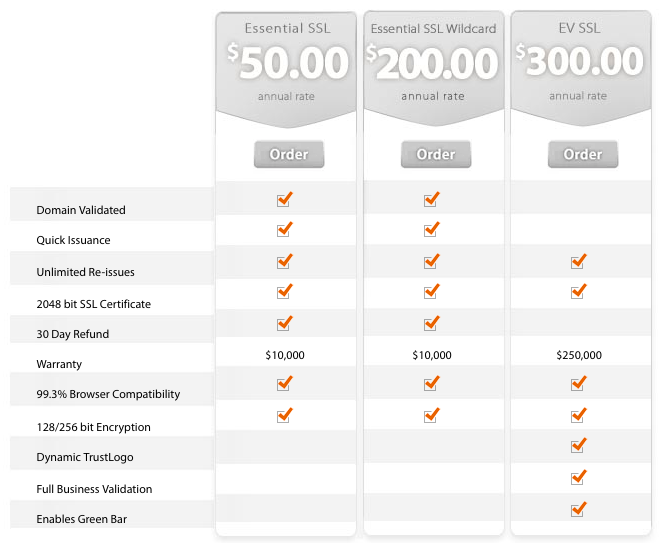
SSL Certificates are small data files that digitally bind a cryptographic key to an organization’s details. When installed on a web server, it activates the padlock and the https protocol (over port 443) and allows secure connections from a web server to a browser.
Why Do I Need an SSL?
There are two main reasons to have an SSL:
• Security
The primary reason why SSL is used is to keep sensitive information sent across the Internet encrypted so that only the intended recipient can understand it. This is important because the information you send on the Internet is passed from computer to computer to get to the destination server. Any computer in between you and the server can see your credit card numbers, usernames and passwords, and other sensitive information if it is not encrypted with an SSL certificate. When an SSL certificate is used, the information becomes unreadable to everyone except for the server you are sending the information to. This protects it from hackers and identity thieves.
• Authentication
In addition to encryption, a proper SSL certificate also provides authentication. This means you can be sure that you are sending information to the right server and not to a criminal’s server. Why is this important? The nature of the Internet means that your customers will often be sending information through several computers. Any of these computers could pretend to be your website and trick your users into sending them personal information.
SSL Certificate Types – What’s the Difference?
Although all SSL certificates use the same basic methods to protect and validate your data, a useful way to categorize them is by validation method. In order to avoid any security warnings, all certificates must be verified by an issuing Certificate Authority (or CA). This is an entity that issues digital certificates (SSLs in this case).
A digital certificate certifies the ownership of a public key by the named subject (domain in this case) of the certificate. This validation is to ensure that it is covering the correct, authorized site. However, more steps can be taken to also confirm the existence of the requesting company or to establish even more trust through extended vetting.

• DV Certificates (Domain validated)
These are the most common type of SSL certificate. They are verified using only the domain name. In order to verify a domain, the CA exchanges a confirmation email with an email address listed in the domain’s WHOIS record. Alternatively, the CA may provide a verification file which the domain owner places in the document root of the website to be protected so the file can be accessed by the CA to prove ownership.
• EV Certificates (Extended validation)
These provide the maximum amount of trust to visitors. EV certificates require the most effort by the CA to validate. It requires extra documentation that MUST be provided as well as some physical documentation with signatures. The EV lists the company name in the certificate itself, however, a fully validated EV certificate will also show the name of the company or organization in the address bar itself. This bar is displayed in green. This is an immediate, visual way to let viewers know that extra steps were taken to confirm the site they’re visiting is secure. This is why most large companies and organizations choose EV certificates.
Purchase Your SSL from HostDime
HostDime.com, Inc. has a SSL Certificate partnership with security solutions provider Comodo. These Comodo SSL certificates include domains validated, quick issuance, unlimited re-issues, 30 day refund, $10,000 warranty, 99.3% browser compatibility, and 128/256 bit Encyption. The certificate also includes a dynamic Comodo Trust Logo, which authenticates the website and provides confidence to website visitors.
To order your SSL via Core, follow these instructions. If you need guidance on generating CSR and RSA keys, go here for WHM and here for own CSR generator.
[divider]
This article was written by Support team member Bill M. and Sales Team members Adriana G and Joshua D.

